Sakina On Her Cycle Rickshaw
Photo essay
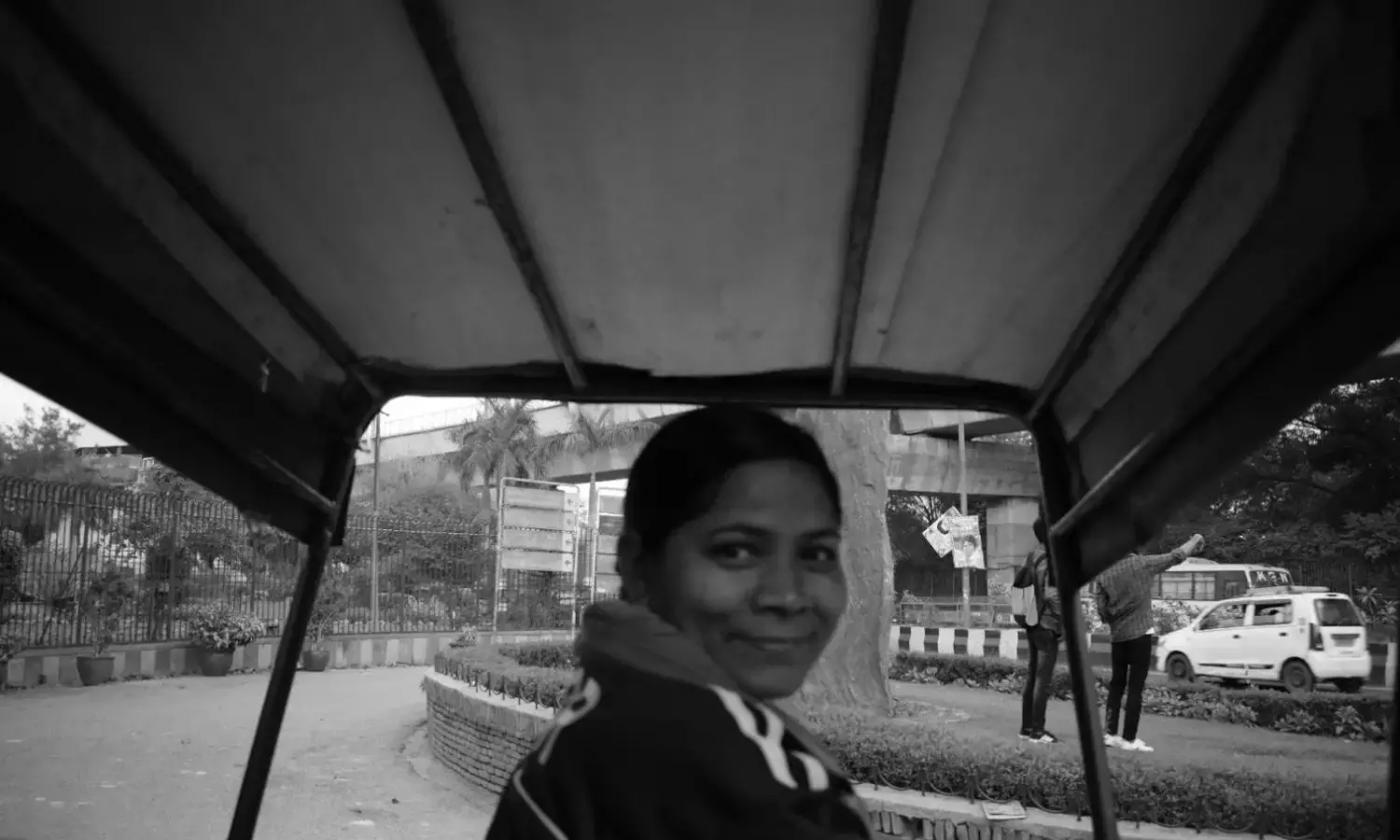
A cycle rickshaw largely remains a popular mode of transport in New Delhi, India, but to find a woman riding a cycle rickshaw is an uncommon phenomenon in the capital city. Since the death of her father, Sakina, who moved here from Bihar, has been feeding herself and her family by pulling a cycle rickshaw around Jamia Nagar. She is the sole breadwinner of her family. When she first started pedalling a rickshaw, people of her village mocked her and called it a man’s turf, but she did not budge and after all the hardships she is still earning a living for her family.
“Many passersby are thrilled to see a woman riding a cycle rickshaw, I have experienced many stares and awestruck glances from them but these don’t scare me, the only thing I am afraid of is not being able to feed my family everyday,” says Sakina.
Her mother passed away when she was very young and after her father’s demise she had no alternative but to fend for herself and her younger siblings. “From working in people’s homes to being a construction labourer I have done various odd jobs, but riding a rickshaw is an experience of its own.”
Muskan, her sixteen year old niece, says “kisi ko acha nahi lagta jab ye rickshaw le kar jaati hain par hum majboor hain.” (Nobody likes it when she rides a rickshaw, but we are helpless.)
A major outcome of Sakina pedalling rickshaw on the streets of Jamia Nagar is economic independence. She exclaims, “Today my siblings are not sleeping on the road. This is far better than begging and feeding them. When I first started this job, people of my village made fun of me and mocked me but no one was willing to help us when we needed it most.” She continues, “riding this rickshaw has helped me regain my freedom - I am not dependent on my relatives now so no one can tell me a thing.”
Sakina works long hours at work and gets no day off. “The only time I take a break from work is when I have to visit my sister. I board a train when I have to go to her place. My appi (elder sister) lives in Faridabad.” She earns roughly around 300-350 Rs everyday, of which she has to pay 100 Rs rent to the rickshaw owner.
After a tiring day of work, when she arrives home, Sakina walks straight to the kitchen. “Pulling a cycle rickshaw requires a lot of physical work. When I go to bed every night, my body aches, someday it's my limbs that hurt whereas some days my chest feels as if it’s carrying the weight of a stone.”
Beyond all this, Sakina desperately harbours the dream of owning an e-rickshaw some day. “The last few months have been very hard on me, I was struggling to make ends meet but I never gave up. An e-rickshaw will bring some joy into my life and help in guarding my family’s future. My younger siblings will be educated and at least won’t end up like me.”
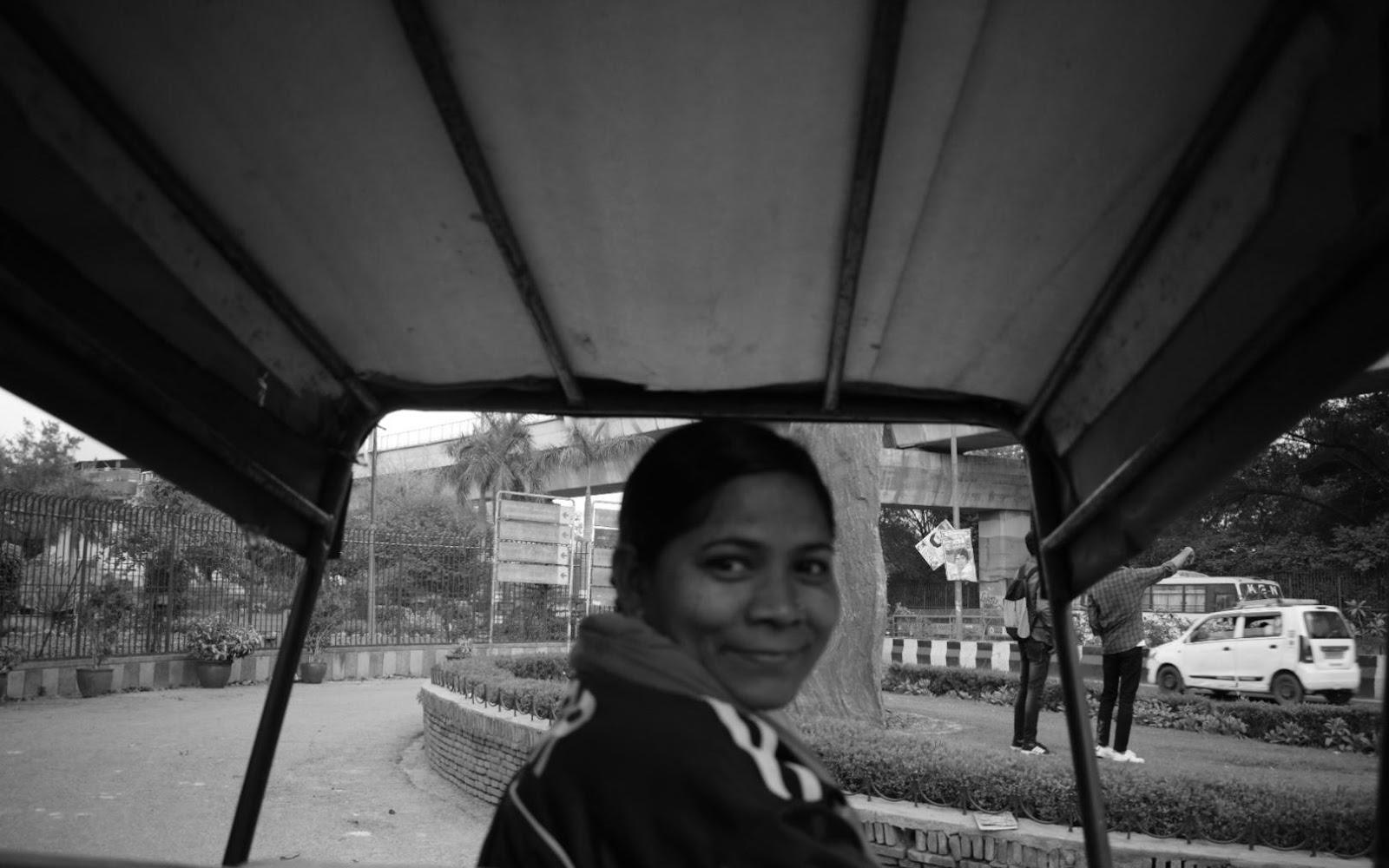
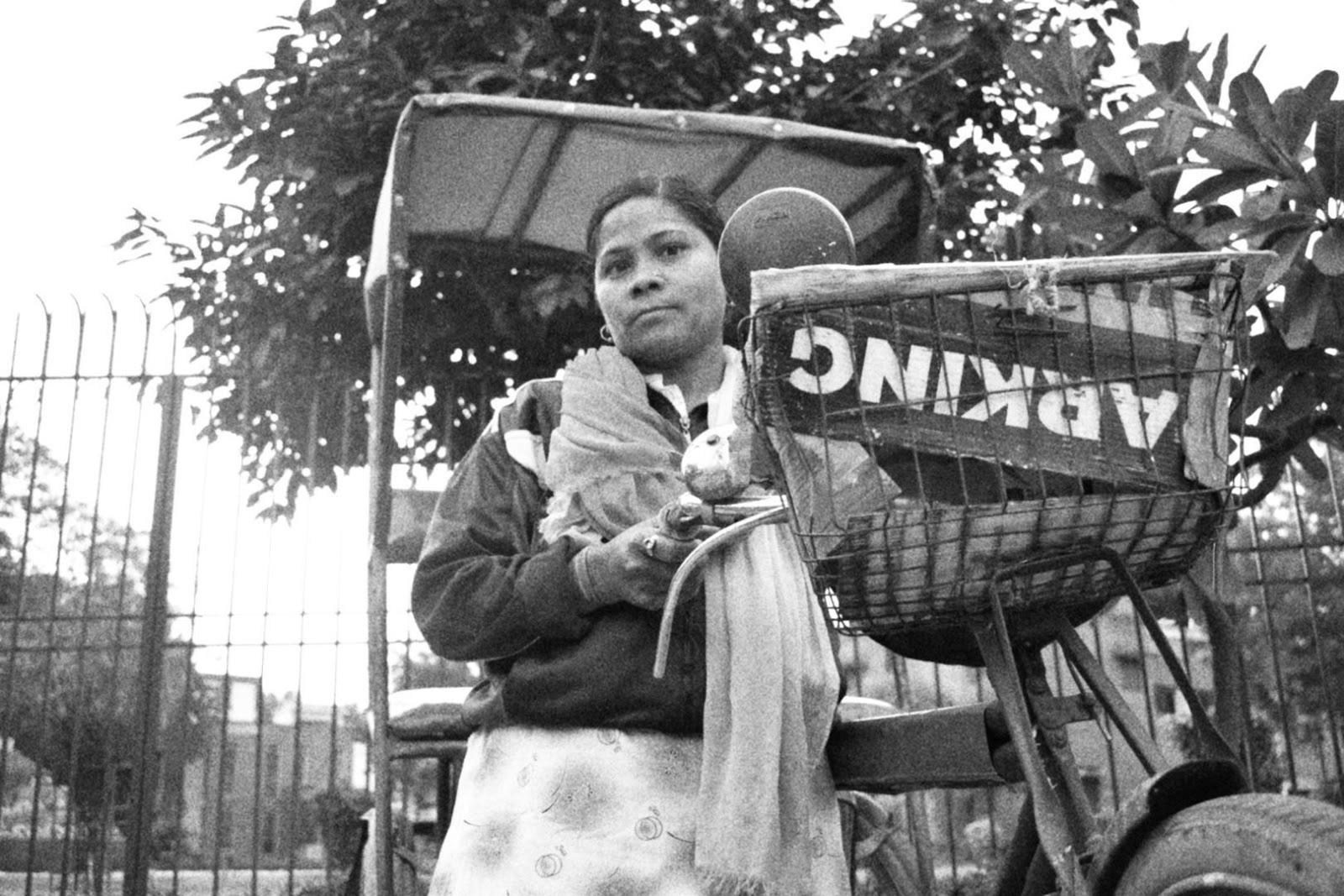
Sakina resting on her rickshaw during lunch break
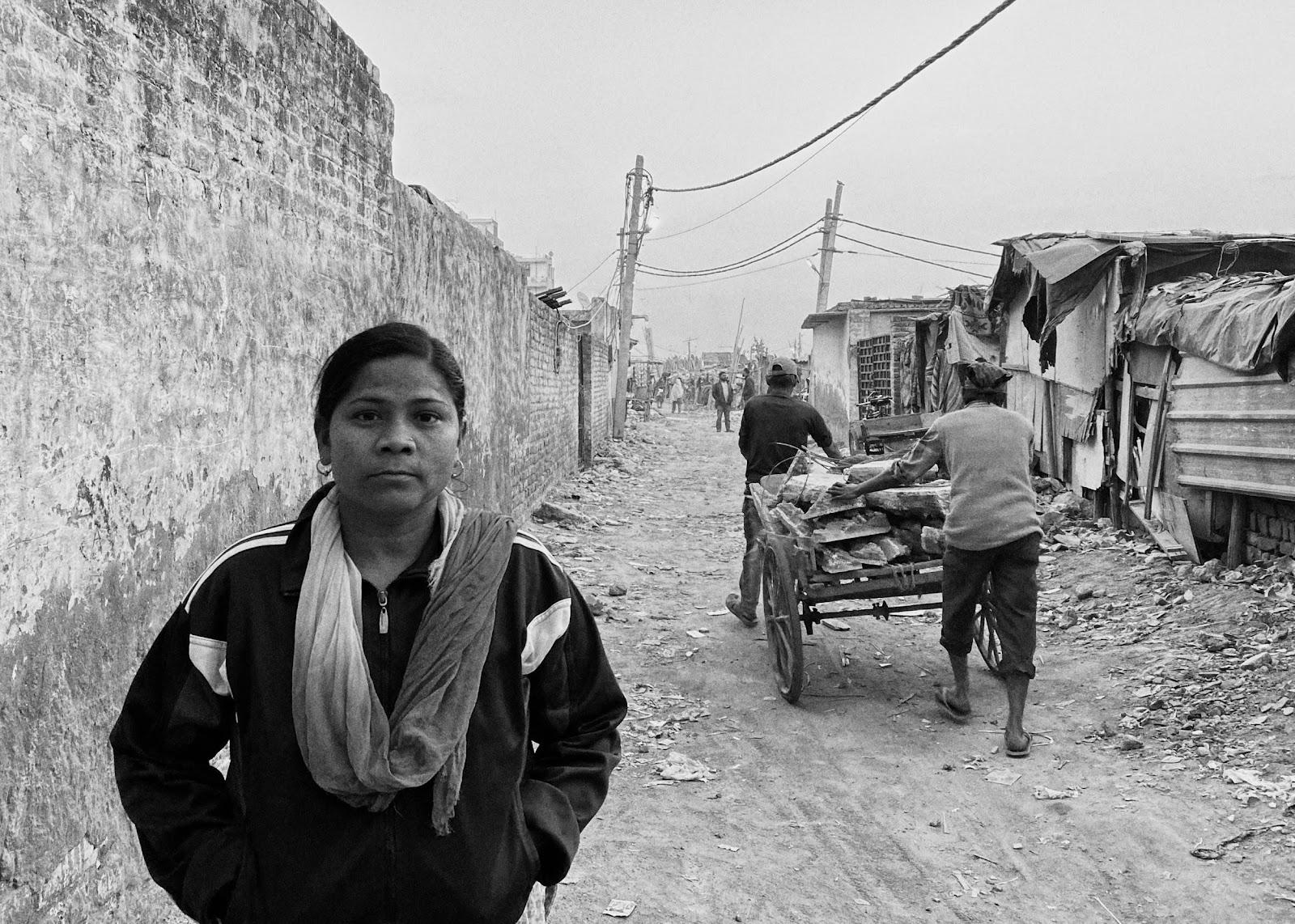
Sakina outside her jhuggi at Batla House
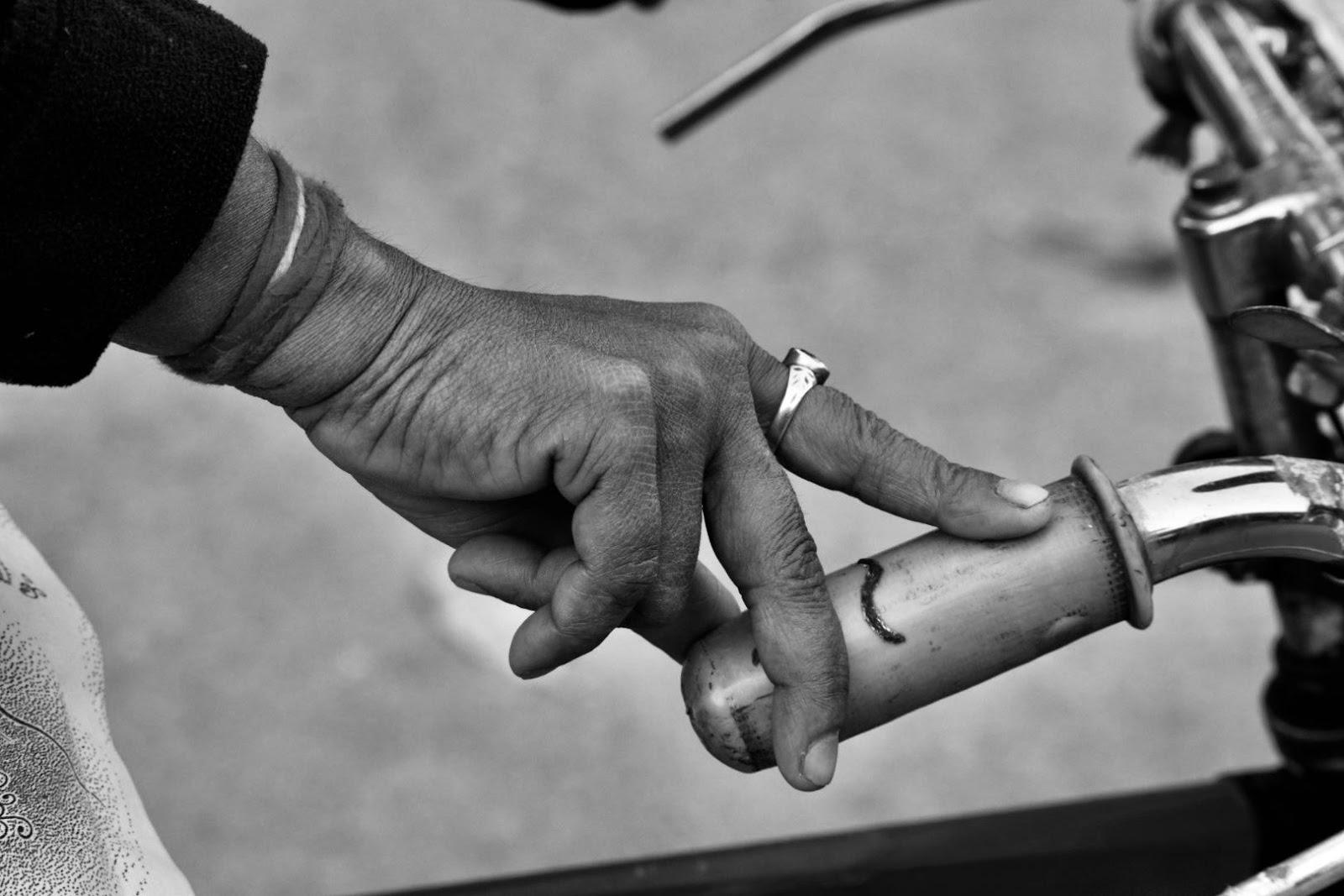
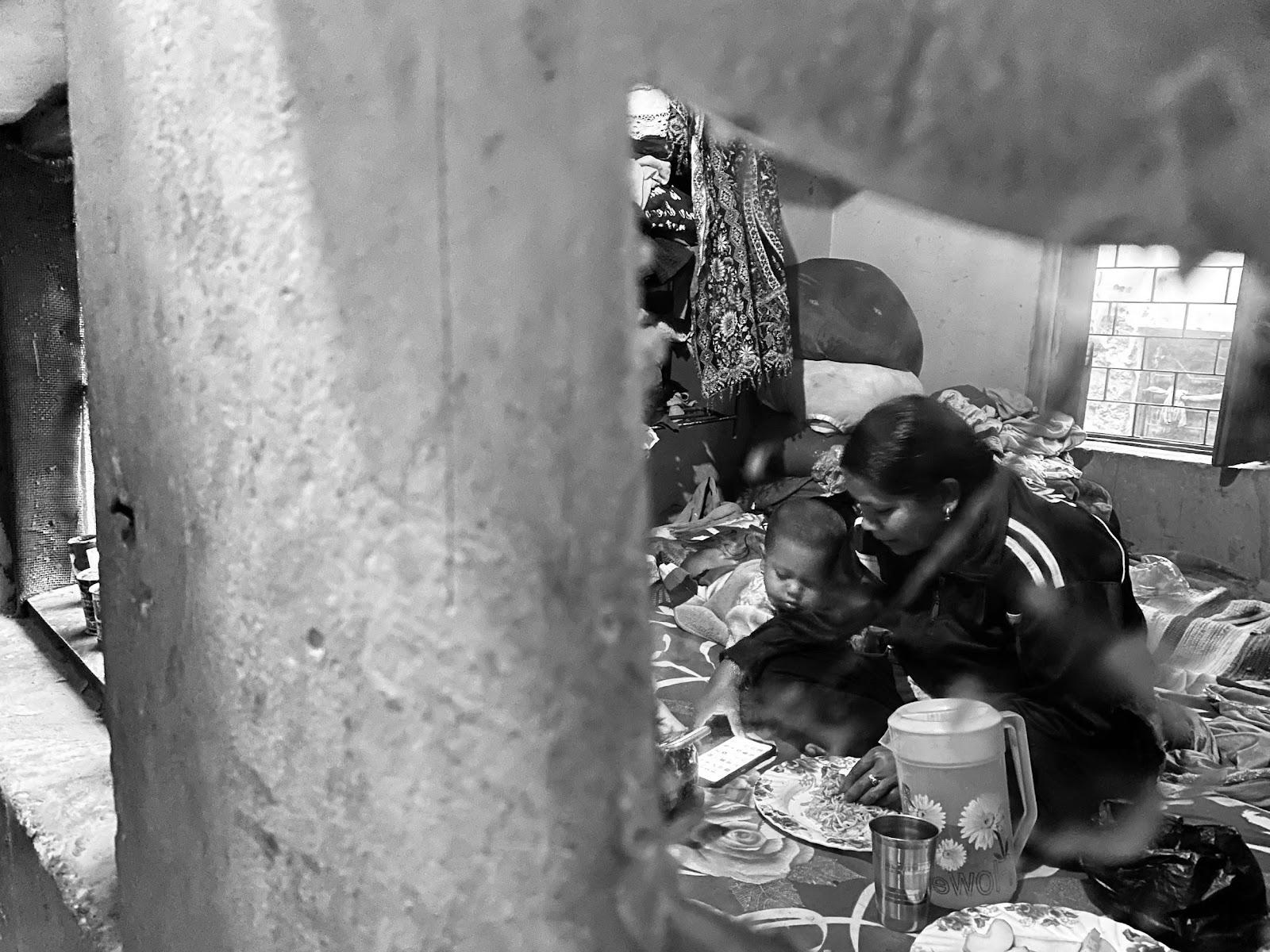
Sakina with Aliya, her four year old niece
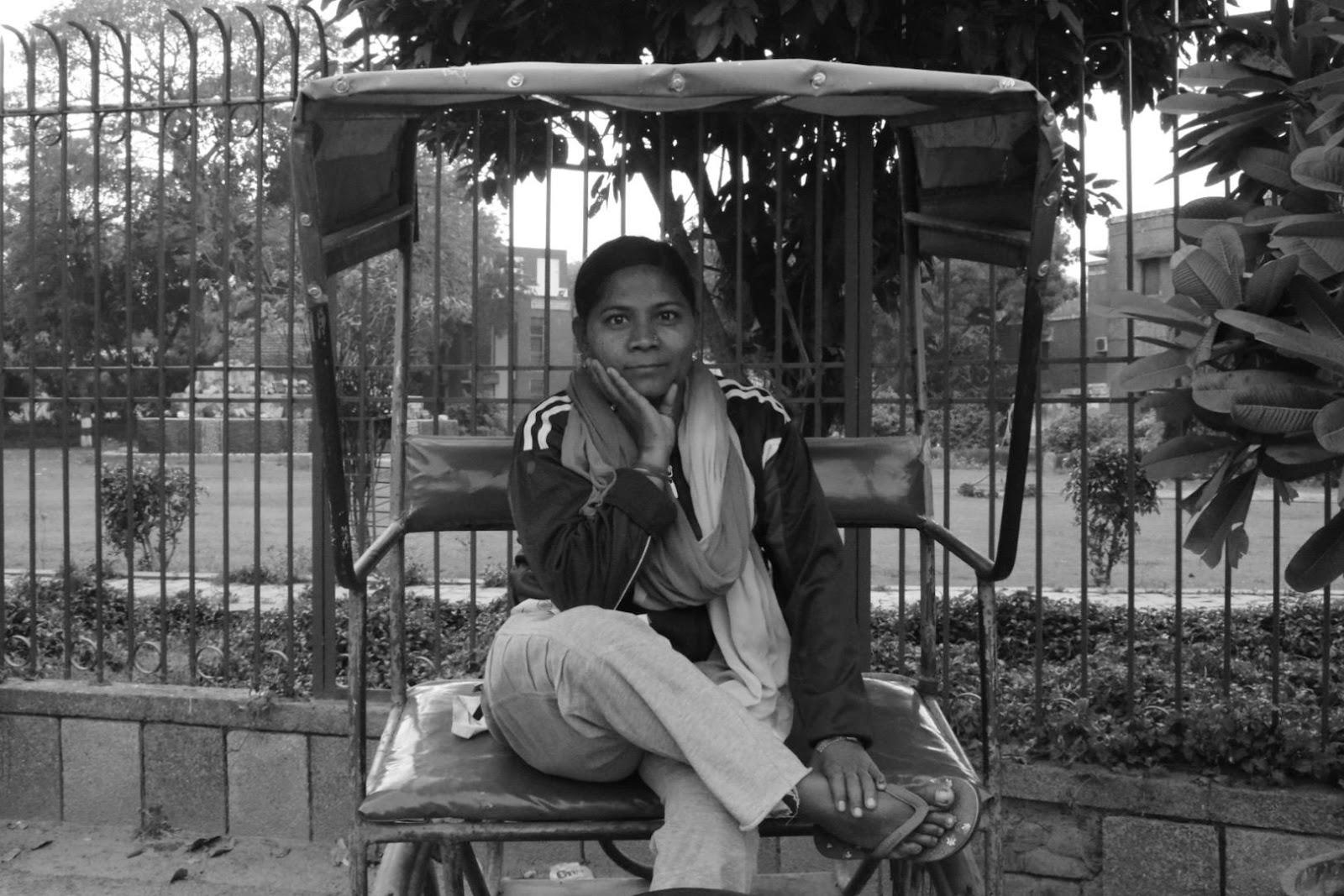
Sakina posing for a photograph at Jamia Nagar
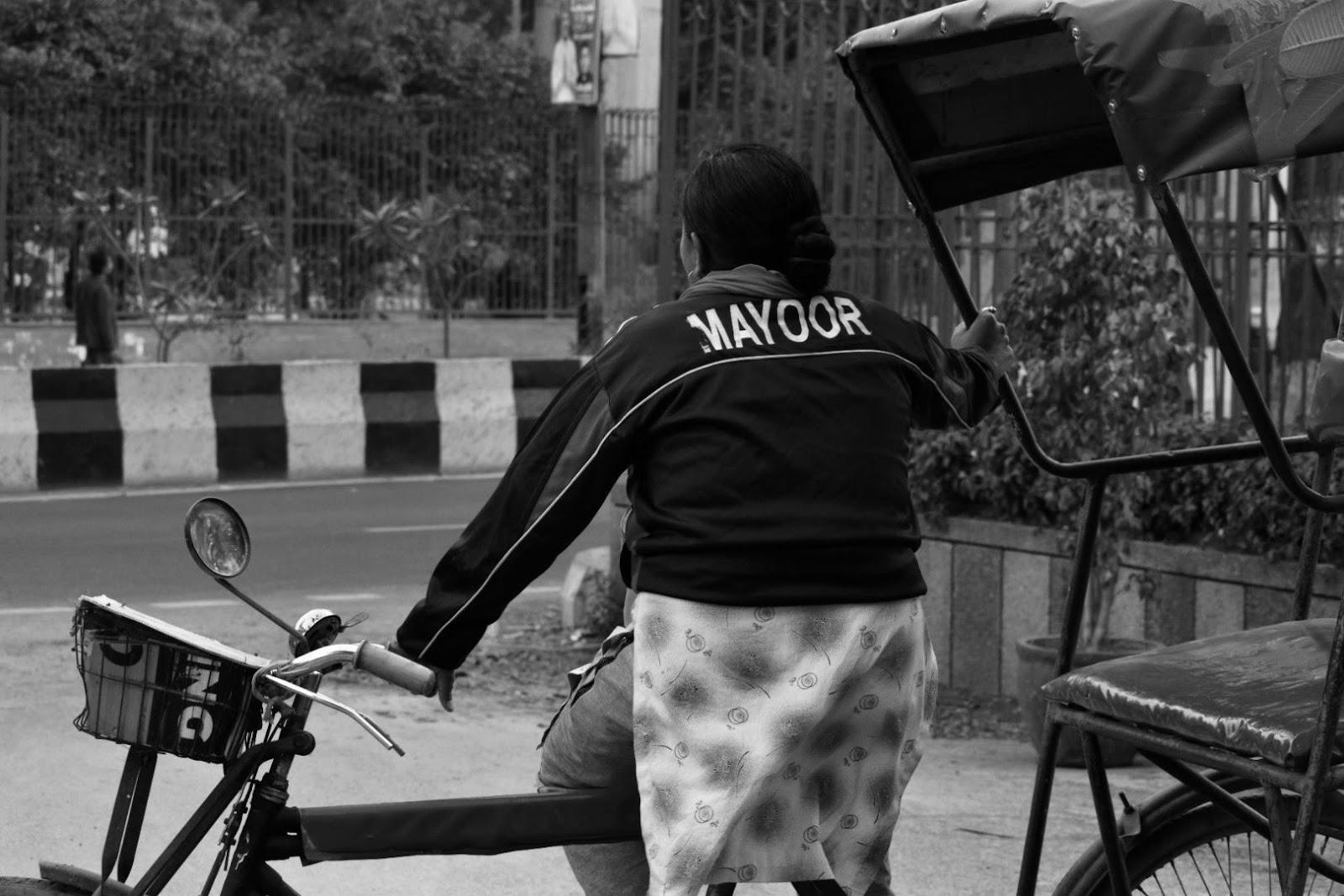
Sakina on her cycle rickshaw
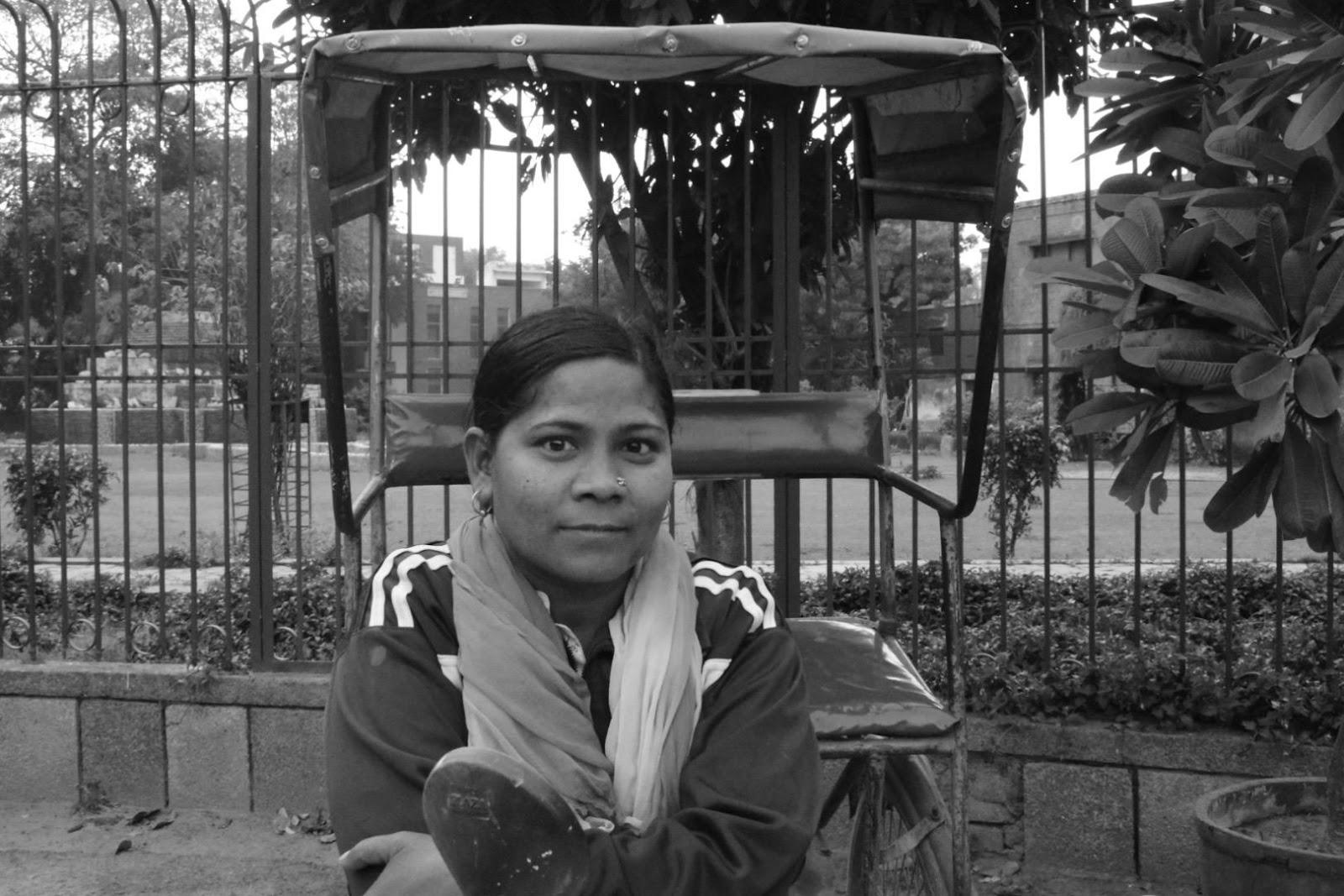
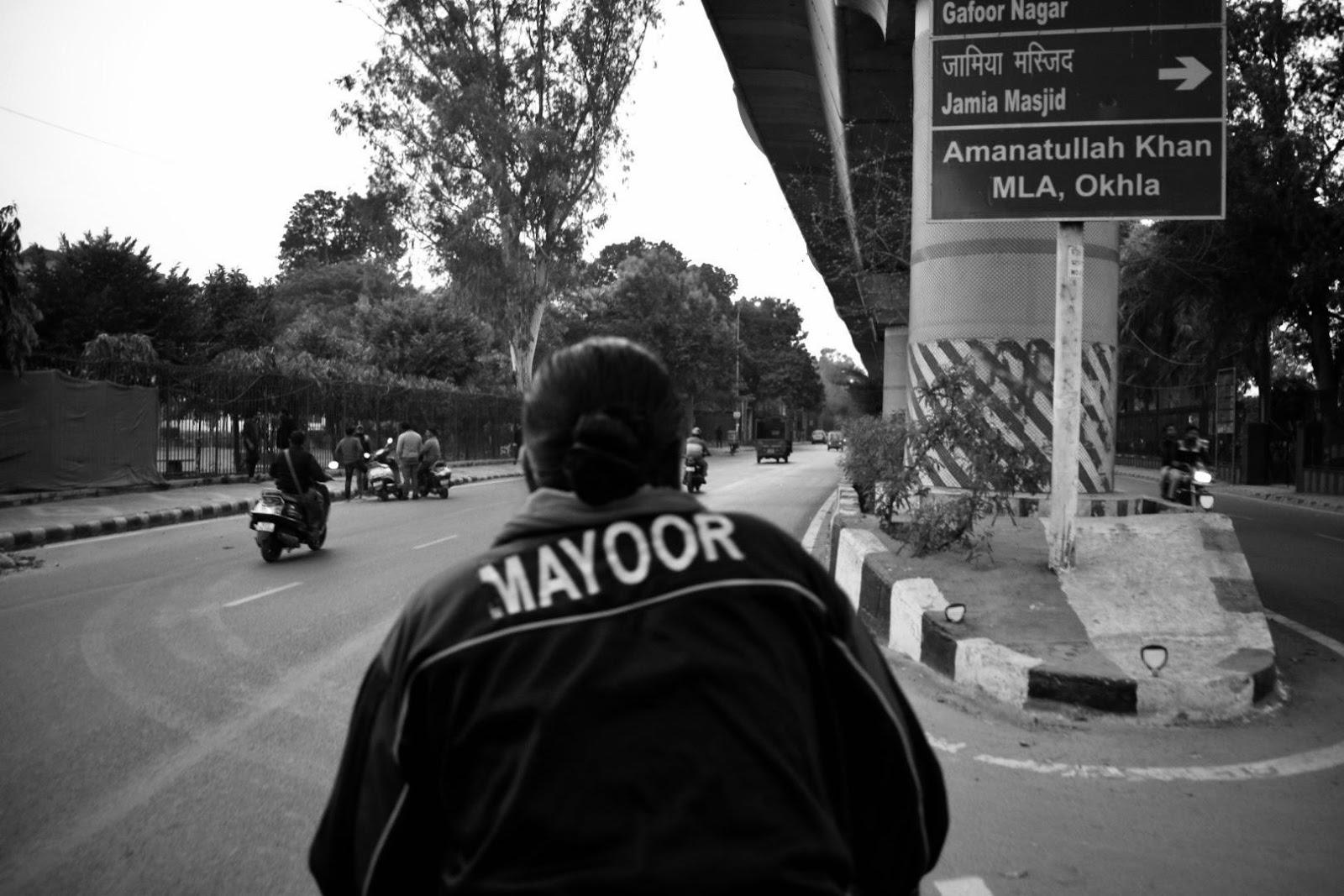
Sakina pedalling her rickshaw around Jamia Nagar
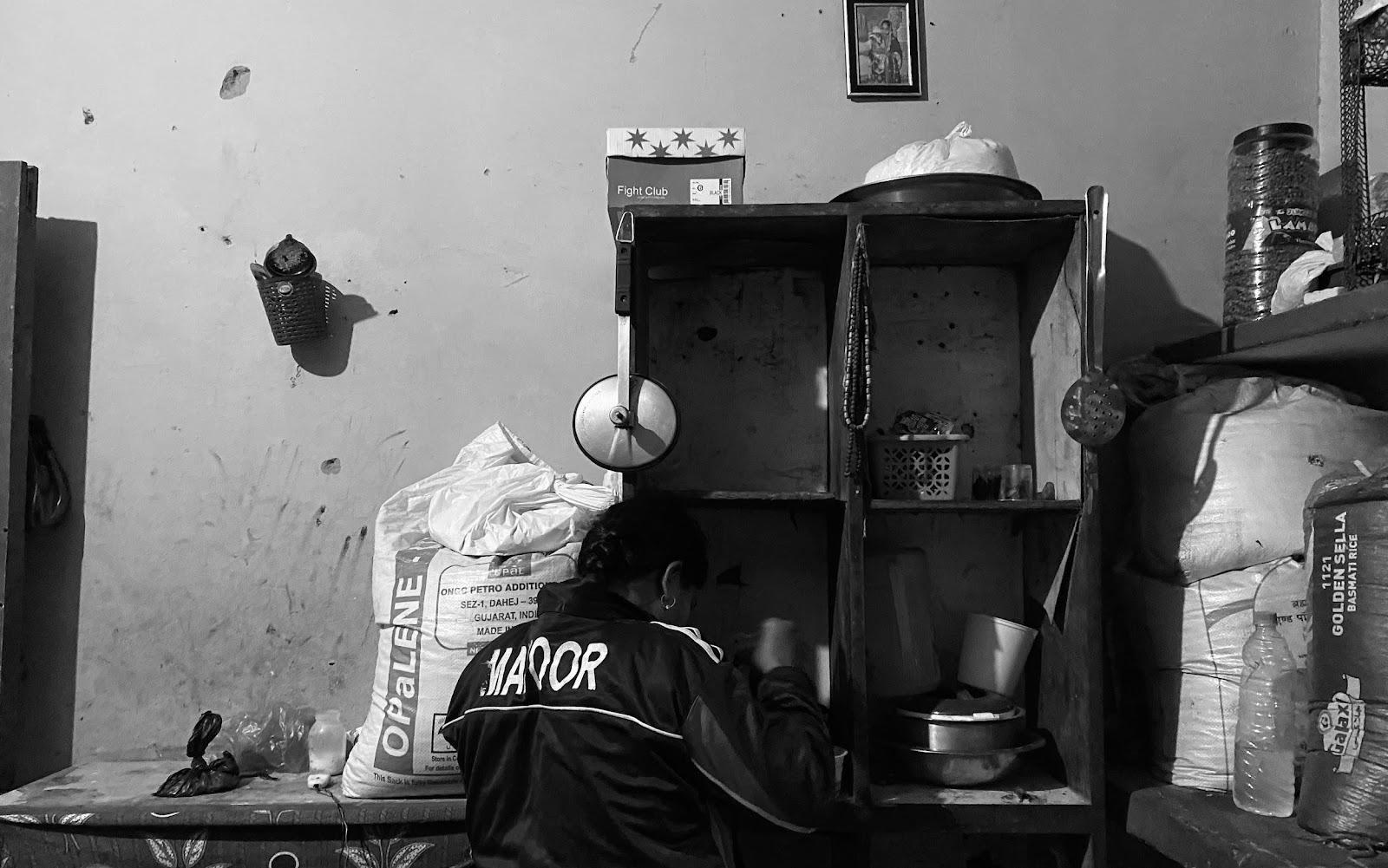
Sakina making tea at home in Batla House
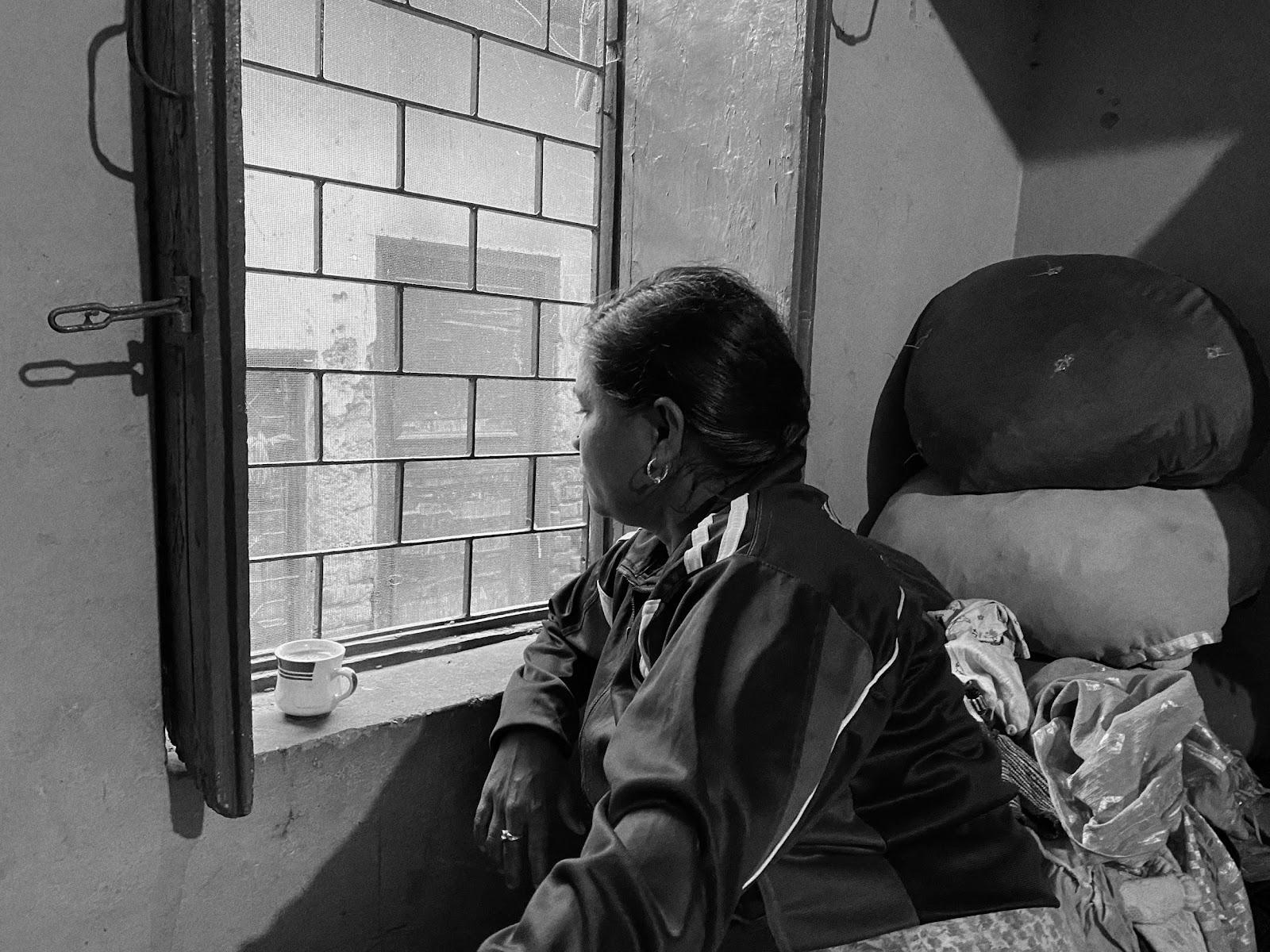
Sakina in solitude
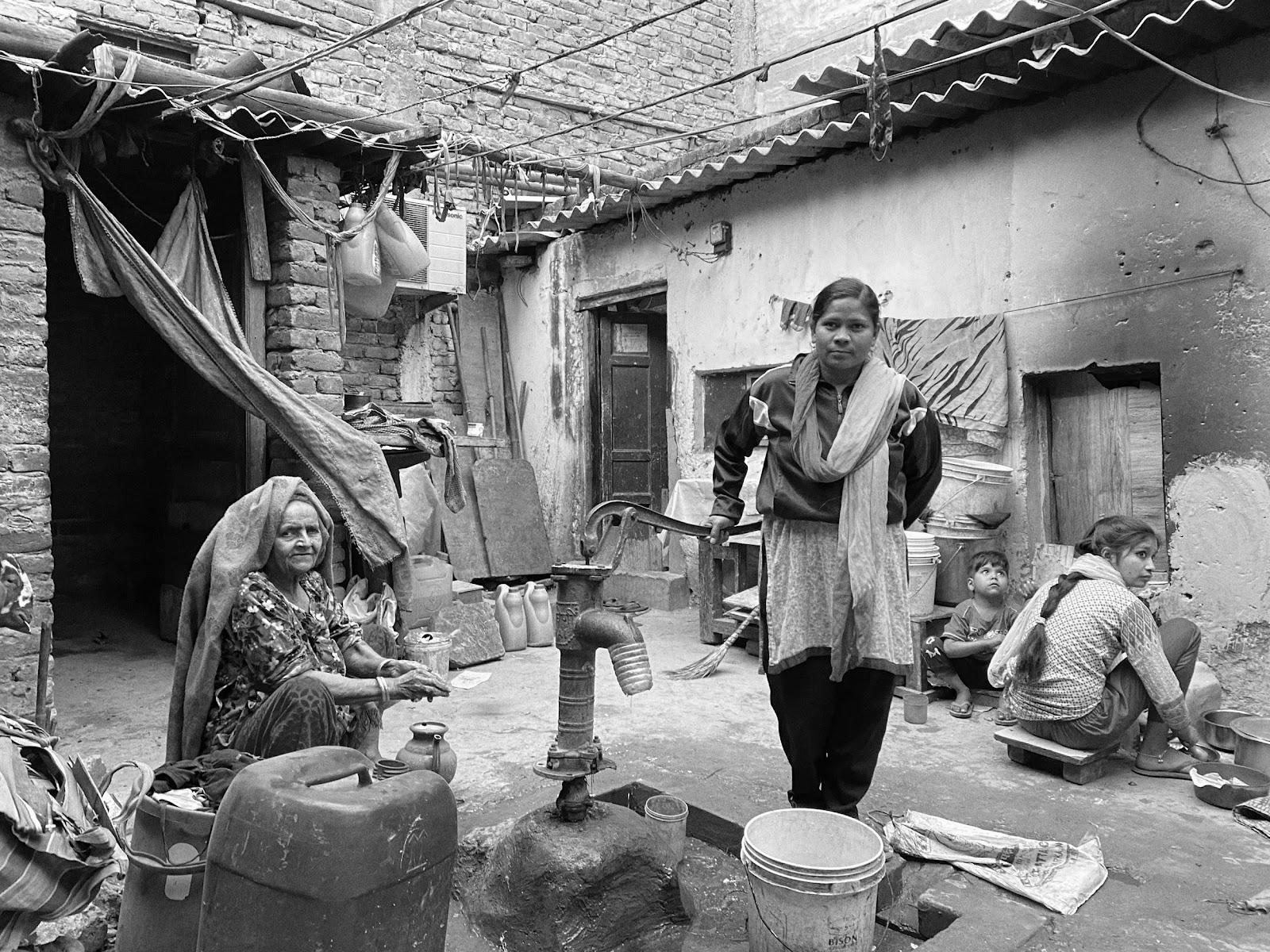
Sakina helping her next door neighbor perform wuzu



